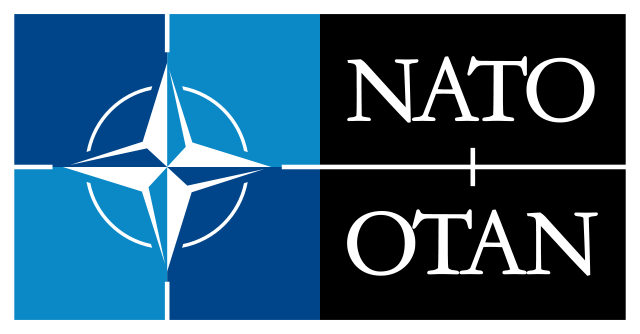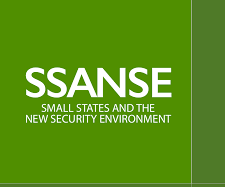
Small States and the New Security Environment (SSANSE)
Rannsóknasetur um smáríkiSmall States and the New Security Environment (SSANSE) is a preparedness initiative examining the defence and foreign policy choices and challenges of small states in NATO and its partner small states in Eastern Europe, MENA, and Oceania in the new security environment. It will help enhance awareness of security developments through early warning, with a view to preventing crises in NATO, its partner states, and in their regions. The research team of scholars will do the due diligence for NATO states and other interested end users on how small states in NATO and NATO partner small states are dealing with current and emerging security challenges and how they might better prepare for these challenges.
About the project
NATO is at a pivotal moment as it responds to a complex new security environment. The Alliance must reassess these threats and plan how to respond. The SSANSE project is a preparedness initiative examining the defence and foreign policy choices and challenges of small states in NATO and those faced by NATO partner small states in Eastern Europe, the Middle East and North Africa, and Oceania in the new security environment.
The last two years have been a turbulent period in global politics. A series of events is putting massive pressure on the international order and on NATO cooperation. To name just a few of these new challenges: Russia’s aggression in Crimea and new naval doctrine; China’s intransigence over South China Sea territorial disputes and emerging maritime strategy; the rise of ISIL and spread of radical terrorist acts on a global scale; the refugee crisis; climate change; the uncertainties of the future foreign policy of US president-elect Trump; all accompanied by rapidly spreading isolationist sentiment in many NATO and NATO partner states. Small states in NATO such as Estonia, Iceland, Lithuania and Latvia; and NATO partner small states such as Djibouti, Georgia, Kazakhstan, Moldova, New Zealand, and UAE are on the front lines of these challenges in the new security environment. Each has limited resources to protect itself, yet as history has shown, the weakness of small states in a time of rising security threats can undermine the security of larger powers; each must find their own way to manage relations between the dominant powers, while protecting their national interests; SSANSE will extend theoretical debates on the role of small states in the changing international system as well as on the issue of how states manage their relations between the major powers in the new security environment.
The four co-directors will coordinate and lead a large team of international specialists on the foreign and defence policies of the small states of NATO, Eastern Europe, MENA, and Oceania. Collectively, the SSANSE team of scholars will deliver a package of academically rigorous, evidence-based, policy-relevant research on the evolving foreign policy choices of NATO small states and NATO partners states and the small states of their regions. The SSANSE project will result in a range of outputs—scholarly papers, public and closed door presentations, policy briefs, theses—that will contribute new thinking on how NATO and its partner states can respond to the “new normal” in international security. The impact of our findings will continue well beyond the funding period, making a major contribution to understanding of the place of small states in the current global environment and contributing to NATO preparedness to respond to the new security challenges and develop new strategies.
Publications
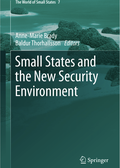
Small States and the New Security Environment
This book examines the security, defence and foreign policy choices and challenges of small states in NATO and its small partner states in the new security environment.
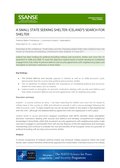
A Small State Seeking Shelter: Iceland’s Search For Shelter
Baldur Thorhallsson - University of Iceland
Presented at the conference: ‘Small States and the Changing Global Order: New Zealand Faces the Future’ at University of Canterbury, Christchurch, New Zealand, 3-4 June 2017
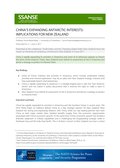
A China’s Expanding Antarctic Interest: Implications for New Zealand
Anne-Marie Brady - University of Canterbury
Presented at the conference: ‘Small States and the Changing Global Order: New Zealand Faces the Future’ at University of Canterbury, Christchurch, New Zealand, 3-4 June 2017
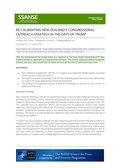
Re-Calibrating New Zealand’s Congressional Outreach Strategy in the Days of Trump
Alan Tidwell - Georgetown University
Presented at the conference: ‘Small States and the Changing Global Order: New Zealand Faces the Future’ at University of Canterbury, Christchurch, New Zealand, 3-4 June 2017
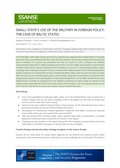
Small State’s Use Of The Military In Foreign Policy: The Case Of Baltic States
Margarita Šešelgytė - Vilnius University
Presented at the conference: ‘Small States and the Changing Global Order: New Zealand Faces the Future’ at University of Canterbury, Christchurch, New Zealand, 3-4 June 2017
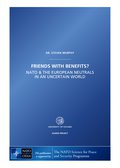
Friends With Benefits: NATO and the European Neutrals in an Uncertain World
Steven Murphy - University of Iceland
Project: SSANSE
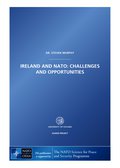
Ireland and NATO: Challenges and Opportunities
Steven Murphy - University of Iceland
Project: SSANSE
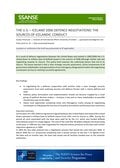
The US-Iceland 2006 Defence Negotiations: The Sources of Iceland Conduct
Gustav Petursson - University of Iceland
Project: SSANSE
